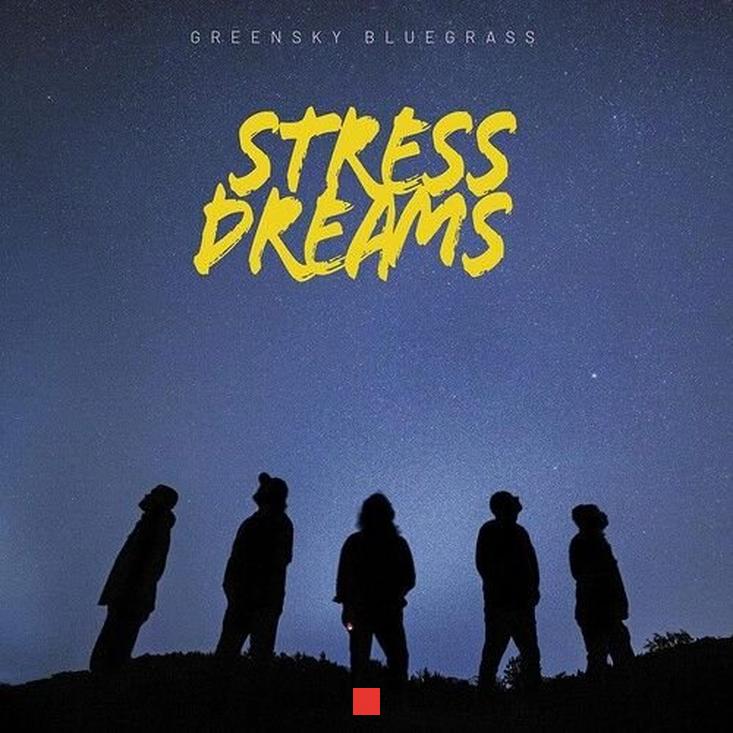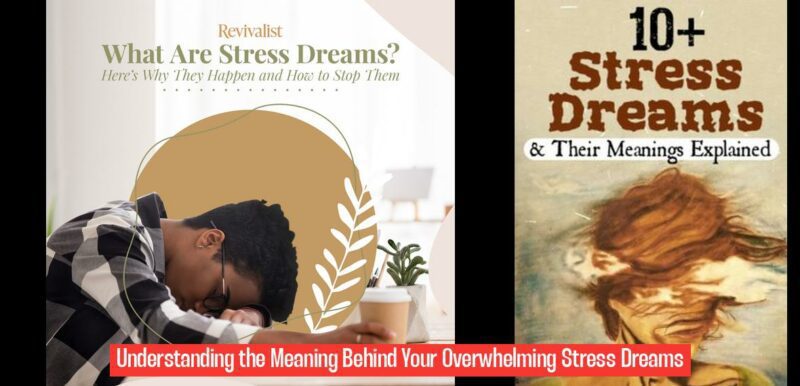My stress dreams are out of control. So, what do they mean?

Have you ever woken up from a dream feeling completely drained, your heart racing, and your mind buzzing with anxiety? It’s a common experience, especially when life throws curveballs our way. Those intense, vivid dreams that leave you feeling rattled are often a sign of stress. They’re our subconscious mind’s way of processing the anxieties, pressures, and worries we carry throughout the day.
So, what can we do about these stress dreams? The first step is to understand what they’re trying to tell us. Let’s dive into the world of stress dreams and explore their meaning, causes, and what you can do to find some peace and restful sleep.
Deciphering the Messages in Your Stress Dreams
Stress dreams are like cryptic messages from our subconscious. They often reflect the anxieties and unresolved issues we experience in our waking lives. While they can be unsettling, they offer valuable insights into our inner workings.
Think about the common themes that appear in your stress dreams. Are you constantly being chased? Are you struggling to find your way in a maze? Do you find yourself losing things or missing appointments? These dream scenarios often symbolize the feelings of insecurity, fear, or loss of control that we might be experiencing in our daily routines.
Common themes in stress dreams, and what they might mean:
- Being chased: This dream might reflect feelings of being overwhelmed or pursued by deadlines, responsibilities, or negative thoughts.
- Getting lost: This could symbolize feelings of confusion, uncertainty, or being lost in a situation.
- Falling: This might represent a feeling of losing control, feeling insecure, or being overwhelmed by life’s challenges.
- Losing things: This dream could indicate fear of losing something valuable, like a job, relationship, or sense of security.
- Being late or missing appointments: This might symbolize feeling pressured or overwhelmed by commitments and responsibilities.
Why Am I Experiencing Such Intense Stress Dreams?

The reasons behind stress dreams are often intertwined with the unique pressures and anxieties we face in our lives. Think about the things that are causing you stress. Is it work? Your personal relationships? Finances? Health concerns? These stressors can trigger heightened levels of anxiety and disrupt our sleep, leading to more vivid and disturbing dreams.
Here are some common culprits behind stress dreams:
- Work pressure: The constant demands, deadlines, and competition at work can take a toll on our mental well-being, spilling over into our dreams.
- Relationship problems: Unresolved conflicts, communication breakdowns, or relationship anxieties can manifest in dream scenarios.
- Financial worries: Financial instability, mounting debt, or concerns about the future can fuel stress dreams.
- Health conditions: Chronic illness, pain, or uncertainty about health can create anxiety that manifests in dreams.
- Significant life changes: Moving, changing jobs, or experiencing major personal events can lead to stress and disrupt our sleep patterns.
The Science Behind Stress Dreams
Stress dreams aren’t just a figment of our imagination. There’s a scientific explanation for why they occur. When we experience high levels of stress, our brains spend more time in REM sleep, the stage of sleep where most dreams occur. Research suggests that this increased time in REM sleep can contribute to more intense and vivid dreams.
This makes sense, right? When we’re stressed, our minds are constantly buzzing with worries and anxieties. This heightened mental activity doesn’t just disappear when we go to sleep. Instead, it gets processed and expressed through our dreams.
How to Stop Having Stressful Dreams
While we can’t completely eliminate stress dreams, we can manage their frequency and intensity by addressing the underlying causes and implementing healthy sleep habits.
Here are some tips to help you cope with stress dreams:
- Improve your sleep hygiene: Prioritize a regular sleep schedule, create a relaxing bedtime routine, and ensure your bedroom is conducive to sleep (dark, quiet, and cool).
- Reduce daytime stress: Identify the stressors in your life and develop strategies for managing them. This might involve exercise, mindfulness techniques, therapy, or simply taking breaks during the day to recharge.
- Practice relaxation techniques: Before bed, try relaxation techniques like deep breathing exercises, meditation, or progressive muscle relaxation to calm your mind and body.
- Avoid stimulants before bed: Cut back on caffeine and alcohol in the evening, as these substances can disrupt sleep and contribute to vivid dreams.
- Seek professional guidance: If stress dreams are persistent and causing significant distress, consider seeking professional help from a therapist or sleep specialist.
Creating a Peaceful Sleep Sanctuary
Just like a cozy, warm blanket on a cold night, a comfortable and relaxing sleep environment can work wonders for your sleep quality and your dreams. Here’s how to transform your bedroom into a stress-free sleep sanctuary:
- Dim the lights: Create a calming atmosphere by dimming the lights an hour before bed.
- Unplug from technology: Avoid screens for at least an hour before bedtime. The blue light emitted from phones, tablets, and laptops can interfere with your sleep cycle.
- Invest in a comfortable mattress and pillows: A good night’s sleep starts with a supportive mattress and pillows that provide optimal comfort.
- Keep your bedroom cool and quiet: The ideal temperature for sleep is around 65 degrees Fahrenheit. Use blackout curtains or an eye mask to block out any light, and try a white noise machine or earplugs to minimize noise.
The Power of Dream Diaries
Sometimes, the best way to understand our stress dreams is to write them down. Keeping a dream journal can help you identify patterns, recurring themes, and emotional triggers. Here’s how to start:
- Keep a notebook and pen by your bedside: As soon as you wake up from a dream, write down as many details as you can remember. Don’t worry about making it perfect or grammatically correct. Just capture the essence of the dream.
- Write about your feelings: Describe how the dream made you feel. Was it scary? Confusing? Exciting? Your emotions can provide valuable clues about the underlying message of the dream.
- Look for recurring symbols: Over time, you might notice certain symbols or themes appear repeatedly in your dreams. Pay attention to these recurring elements, as they often hold significant meaning for you.
- Don’t overanalyze: Dream interpretation is subjective. There’s no one-size-fits-all approach. Trust your instincts and what feels right to you.
Final Thoughts
Stress dreams are a common experience, and they often offer valuable insights into our emotions and anxieties. By understanding their causes, taking steps to manage stress, and creating a peaceful sleep environment, you can reduce the frequency and intensity of these dreams and find more restful sleep. Remember, you’re not alone in this journey. If stress dreams are causing you significant distress, don’t hesitate to seek professional help. Take care of yourself, and sweet dreams!
What are stress dreams and why do we experience them?
Stress dreams are intense, vivid dreams that often leave us feeling anxious and rattled. They are a reflection of the anxieties, pressures, and worries we carry throughout the day, serving as our subconscious mind’s way of processing these emotions.
Read Also : YouTuber Dr. Dan Bockmann Embraces a Life of Purity in His Last Days
What are some common themes in stress dreams and what do they signify?
Common themes in stress dreams include being chased, getting lost, falling, losing things, and being late or missing appointments. These scenarios symbolize feelings of being overwhelmed, confused, insecure, or pressured in our waking lives.
How can we decipher the messages in our stress dreams?
By reflecting on the common themes in our stress dreams, such as being chased, getting lost, falling, losing things, or being late, we can gain insights into our inner anxieties and unresolved issues. These dreams act as cryptic messages from our subconscious, offering valuable clues about our emotional state.
Why do stress dreams tend to be so intense and vivid?
Stress dreams are often intense and vivid because they reflect the heightened emotions and anxieties we experience in our waking lives. The intensity of these dreams is a manifestation of the deep-seated stress, fears, and pressures we may be grappling with on a subconscious level.


